Going out the field: ADMI staff visit projects in India, Bangladesh
Following the ADMI-IFPRI forum on improving grain storage in New Delhi on February 5, ADMI staff members traveled to Bihar and Bangladesh to visit our research partners and see projects in progress.
Alex Winter-Nelson, ADMI Director; Maria Jones, ADMI Associate Director; and Sarah Schwartz, ADMI Communications Coordinator, were accompanied by Prasanta Kalita, former director of ADMI. Bob Zeigler, ADMI External Advisory Board member, also joined our group for the Bihar portion of the trip.
The Climate-Smart Villages (CSV) project is sponsored by the Government of Bihar. The Borlaug Institute for South Asia (BISA) is the leading organization and Rajkumar Jat is the lead scientist for the project. The CSV project focuses on instructing farmers on adapting production practices to a changing climate. Adaptions include (but are not limited to) planting different crops, planting earlier in the season, and rotating crops. The project is active in 100 villages. ADMI has added PHL reduction strategies to the project, leveraging the project’s infrastructure and providing additional funds to focus on PHL reduction through drying, storage, and training.
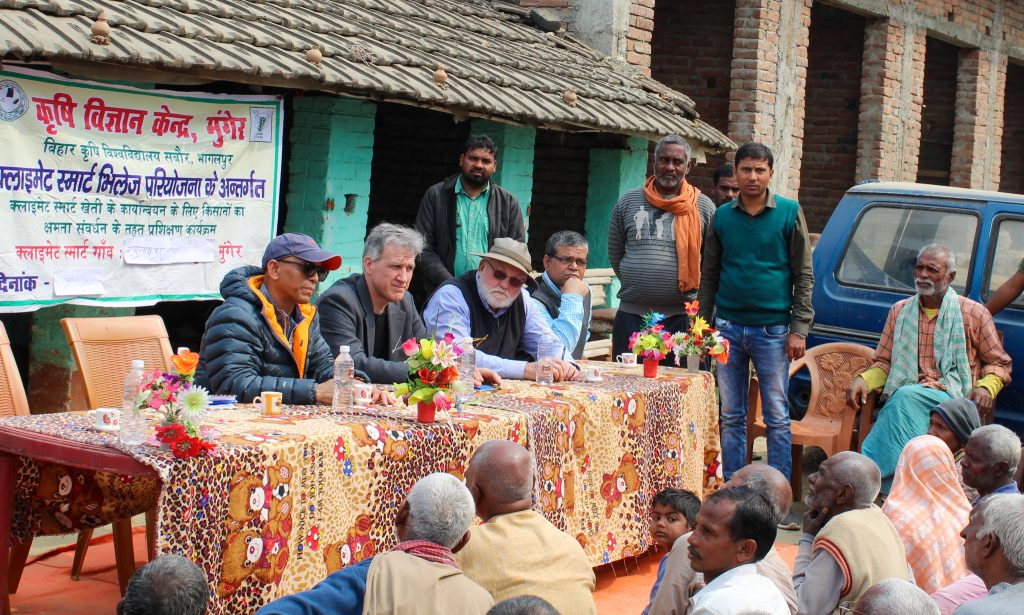
Our group visited villages in four districts that are part of the CSV project. During group meetings organized by project partners, farmers in the villages of Balauri, Tilakpur, and Ghorghat came to greet and talk with ADMI staff. Farmers told the group about local issues with postharvest management, their experiences with hermetic storage, and financial management challenges. In Katihar, the ADMI group walked through the village to speak with the famers and see traditional and newer postharvest methods in use. In some Katihar households, we saw large earthen pots and baskets being used beside hermetic storage bags, but with very different results in terms of grain quality. We also observed paddy rice sun-drying on a tarp instead of on the ground. Some households also used metal silos to store grain.
Farmers reported that they like using the bags, and feel that the grain quality from the bags is much better than what they get in the traditional earthen pots or metal bins. In addition, grain stored in the earthen pots must be dried two or three times over the course of several months, whereas they only have to dry the grain once when it’s in a hermetic bag. Insects and rats are very much a problem in the traditional storage containers.
When asked if the rice from the bags tastes different we were told, “Yes, it tastes better.” Farmers also told us that when they place 50 kg of rice in the bags, “after three months, it is still 50 kg”.
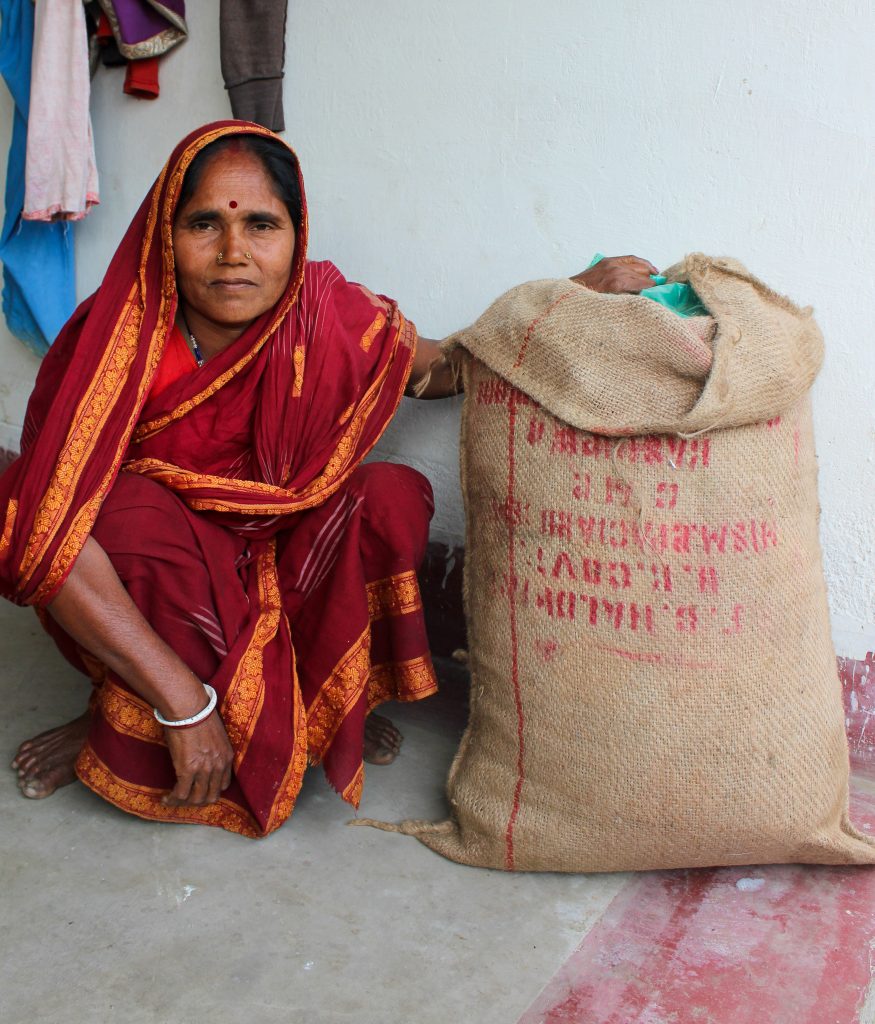
In India, a majority of postharvest tasks are performed and managed by women.
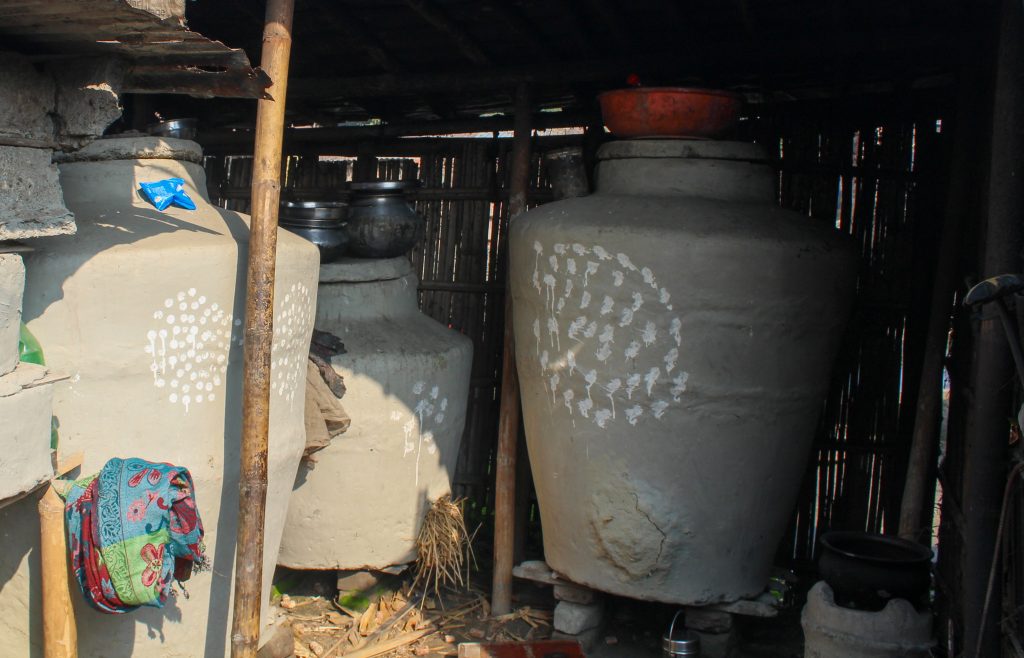
ADMI staff also visited farms that are growing different crops as a part of the larger CSV project. We visited with Krishi Vigyan Kendra (KVK) extension staff, who provide many of the trainers that work with the CSV project to instruct groups of farmers. At the KVK location in Munger district, we heard about the KVK’s work, and saw some examples of skills that are taught by instructors there, including in-home mushroom production.
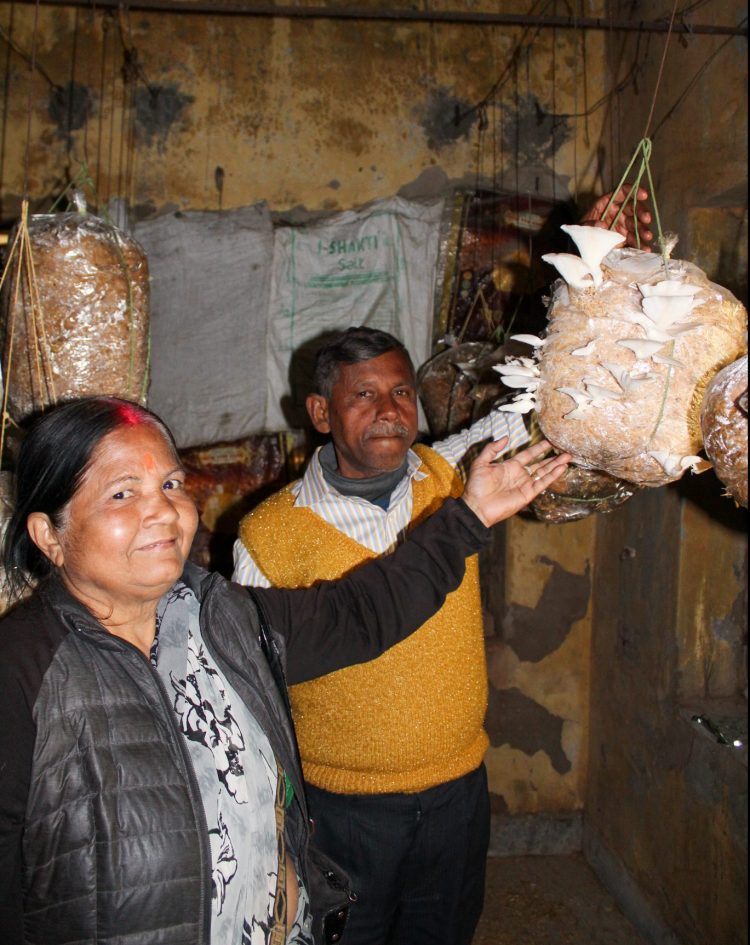
Our research partners from BISA, Bihar Agricultural University and Dr. Rajendra Prasad Central Agricultural University were great hosts. We appreciate their work to prepare for our visit and the work they do all year on these and other projects.
After a few days in Bihar, some members of the ADMI group continued on to visit our partners at Bangladesh Agricultural University (BAU) in Mymensingh. Highlights of our visit included a visit to the Moti Auto Rice Mill to observe the setup of a new hermetic cocoon research project by BAU researchers.
In the experiment, several 5-ton capacity hermetic cocoons have been set up next to traditional storage arrangements to test rice storage over a four month period. Several parameters are being monitored by researchers, including the temperature, moisture content, and CO2 levels in the cocoons.

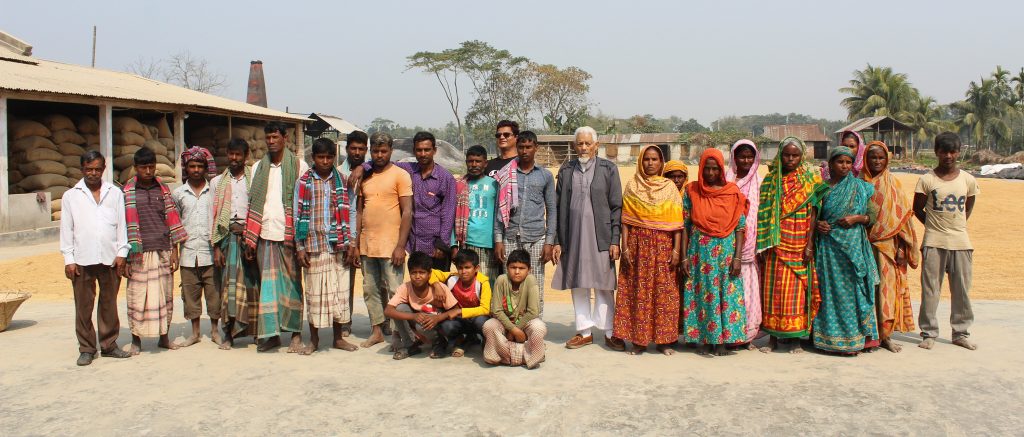
We also visited a seed storage facility operated by the Bangladesh Agricultural Development Corporation (BADC), which supplies 40% of all rice seeds in Bangladesh. The facility can store up to 3,000 tons of seed. The hermetic cocoon research project is in part to determine if cocoons might provide a more efficient storage technique for the facility.
ADMI staff heard updates about other postharvest research taking place at BAU for the Feed the Future Innovation Lab for the Reduction of Post-Harvest Loss (PHLIL) and Appropriate Scale Mechanization Consortium (ASMC). Many thanks to our partners at BAU – Md. Monjurul Alam, Chayan Saha, and Abdul Awal, and the members of their research groups – for all of their work to attend the forum and host our visit to Mymensingh. We appreciate all of the great work going on at BAU!



Add Comment